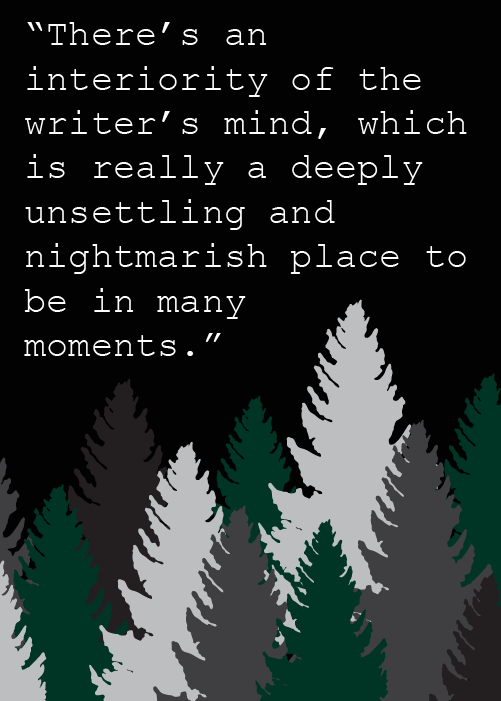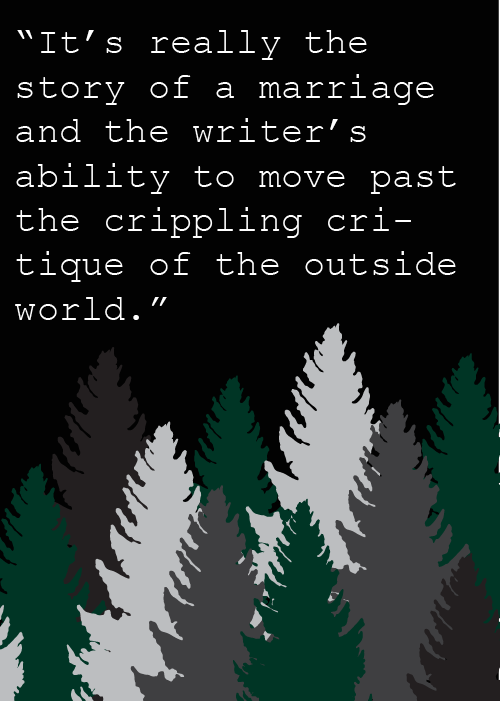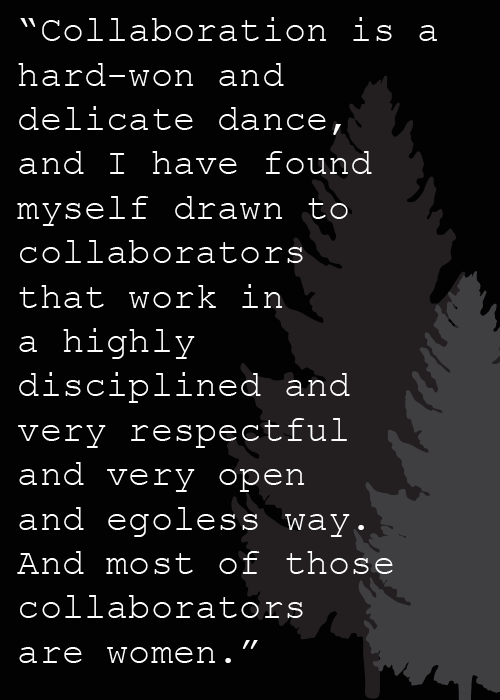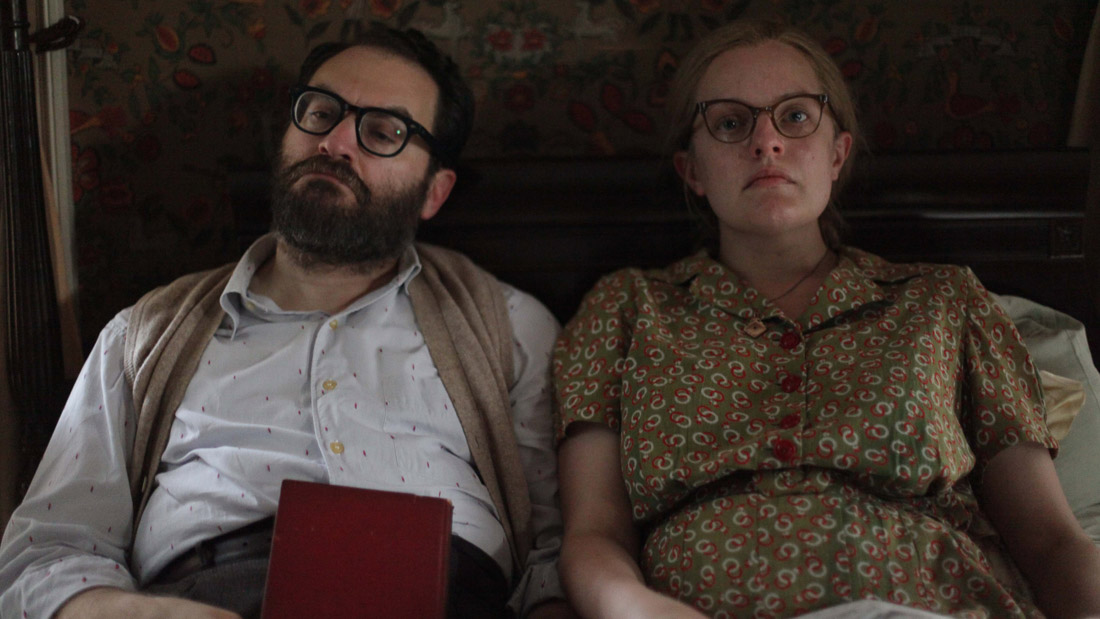Queerer and Weirder: Screenwriter Sarah Gubbins makes her feature film debut with ‘Shirley’
April 22, 2020
Sarah Gubbins (Communication ‘97, ‘08) first fell for Shirley Jackson’s twisted sensibilities in a performance studies class her senior year at NU. This year, she premiered her biopic of the horror and mystery author at Sundance Film Festival to critical acclaim.
A successful Chicago playwright-turned-Hollywood screenwriter, Gubbins first brought Chris Kraus’ cult novel “I Love Dick” to television before her feature film debut with “Shirley.” She calls the film “a psychosexual drama about an author who is trying to find a way into her next book.”
Gubbins sat down with The Daily to talk about her career after leaving Chicago, writing “Shirley” and working in women-led spaces.
This interview has been lightly edited for brevity and clarity.
The Daily: How did you find yourself writing for television?
Gubbins: A bunch of my playwright friends from Chicago were moving to L.A. and getting work staffing television shows. I did a year in the Twin Cities on a Jerome Fellowship. It was a time of transition: I could either move back to Chicago or I could see what happened in Los Angeles. So I moved out to L.A., and that’s when I came across Chris Kraus’s book “I Love Dick.” I was working with [“Transparent” producer] Jill Soloway on a feature, so I brought them this idea of making “I Love Dick” into a television show. And they were really receptive and thought it was a great idea, and we brought it to Amazon. And that was the first television show I worked on.
The Daily: Breaking into TV with Jill Soloway is pretty impressive.
Gubbins: It was an invaluable learning experience, absolutely. Chris Kraus’ book was such a seminal feminist text in the 90s, when it was published. So transferring it into a different medium was very exciting for both of us. It all really just came together. The project made sense, the people who wanted to be working together really all made sense. And then we got together a writer’s room of all women. I’m very proud of the show.
The Daily: Tell me about how you started working on“Shirley.”
Gubbins: “Shirley” I started well before working on “I Love Dick.” A friend put me in touch with the writer of the novel, and she had a manuscript that was about to go to publication. And I read it and I had a meeting with a producer, Sue Naegle, and we were looking for a project to do together, and we both loved Shirley Jackson. It took a minute to figure out how the adaptation would go, and for me to complete the screenplay, and then we put the project together and brought Elisabeth Moss to play Shirley, and found this phenomenal director Josephine Decker.
The Daily: How did you incorporate Jackson’s style into “Shirley?”
Gubbins: The screenplay was built almost forensically – I had read all of her work by the time we started working on it. She got these preoccupations with certain things, stuff that comes up over and over. The idea being we were going to meet Jackson at the time she had just written this huge New Yorker story, which was “The Lottery,” and instead of being hailed as a literary genius, the New Yorker got the most cancelled subscriptions ever. It was an insult, it was perplexing, it was deeply offensive to many people. They didn’t understand it, and they found it in poor taste.
And so she’s taken to her bed in absolute depression. And her journey is her trying through her writing to rehabilitate herself back in the world. There’s an interiority of the writer’s mind, which is really a deeply unsettling and nightmarish place to be in many moments. And using a lot of what will show up in future works of hers.

She was married to what we’d now call a musicology professor, his name is Stanley Hyman. He’s one of her biggest supporters. So it’s really the story of a marriage and the writer’s ability to move past the crippling critique of the outside world. And she ends up writing in the film her novel “Hangsaman,” which is loosely based on the real life disappearance of a Bennington student. And in the film to do that, Stanley invites a young couple to come live with them. There’s a direct homage to “Who’s Afraid of Virginia Woolf,” with this couple using this young couple to work out the issues in their marriage.

The Daily: One review called your film “’Who’s Afraid of Virginia Woolf,’ but queerer and weirder.’
Gubbins: [laughs] High compliment! I’d like to see that on a poster.
The Daily: You’ve worked on a lot of women-led productions – do you find yourself drawn to projects led by women?
Gubbins: I don’t think it’s an accident. Collaboration is a hard-won and delicate dance, and I have found myself drawn to collaborators that work in a highly disciplined and very respectful and very open and egoless way. And most of those collaborators are women.

The Daily: This was your first time working with Josephine Decker. What was it like working with her?
Gubbins: Josephine and I approach work very differently but with the same intensity and vigor. She comes with such an intuitive cinematic sensibility that I really learned a lot from. I think she would say I come from this space where you hold structure, dramaturgical arcs, that can hold the intention of the entire film, that gave her the freedom to give into moments. So there was this marvelous give and take. Plus she’s a marvelous human being, which is always nice.
When we were first starting to work together on the film, I called her up and said, “Why don’t I come over and make you soup?” And she would come to my house and I would cook and we’d work on the script for a couple hours.
The Daily: What does your writing process look like?
Gubbins: Every project is different. I usually start with a lot of research. If it’s an adaptation, I’ll try get a sense of the author’s work.
In the actual writing, it’s just terrible [laughs]. I’m under deadline for a feature right now. You always hate writing but you love having written. Someone said that, I’m not sure who, but they were right.
98 percent of the work that I do is revising. There is an initial idea, an initial push to try take what you’re envisioning and try exfiltrate what you’re envisioning.
The Daily: How did you write “Shirley?”
Gubbins: That was a doozy. I did a bunch of research – I had the book I was adapting, and then I did a bunch of research into the actual Shirley Jackson.
Part of that research was I found a treasure trove of letters that Stanley and Shirley had written to each other. So that really gave a voice to the character. She just has this wicked sense of humor, this sharp wit.
And after that – I wouldn’t advise this – I wrote a novella of the script that I adapted into the screenplay.
The Daily: Did any of your own experiences factor into “Shirley?”
Gubbins: The most obvious, I think, would be the crippling insecurity you feel as a writer about your own work, and the dependency you draw upon the people in your life to keep you afloat while you’re in those moments.
Email: [email protected]
Twitter: @maybejoshirvine

